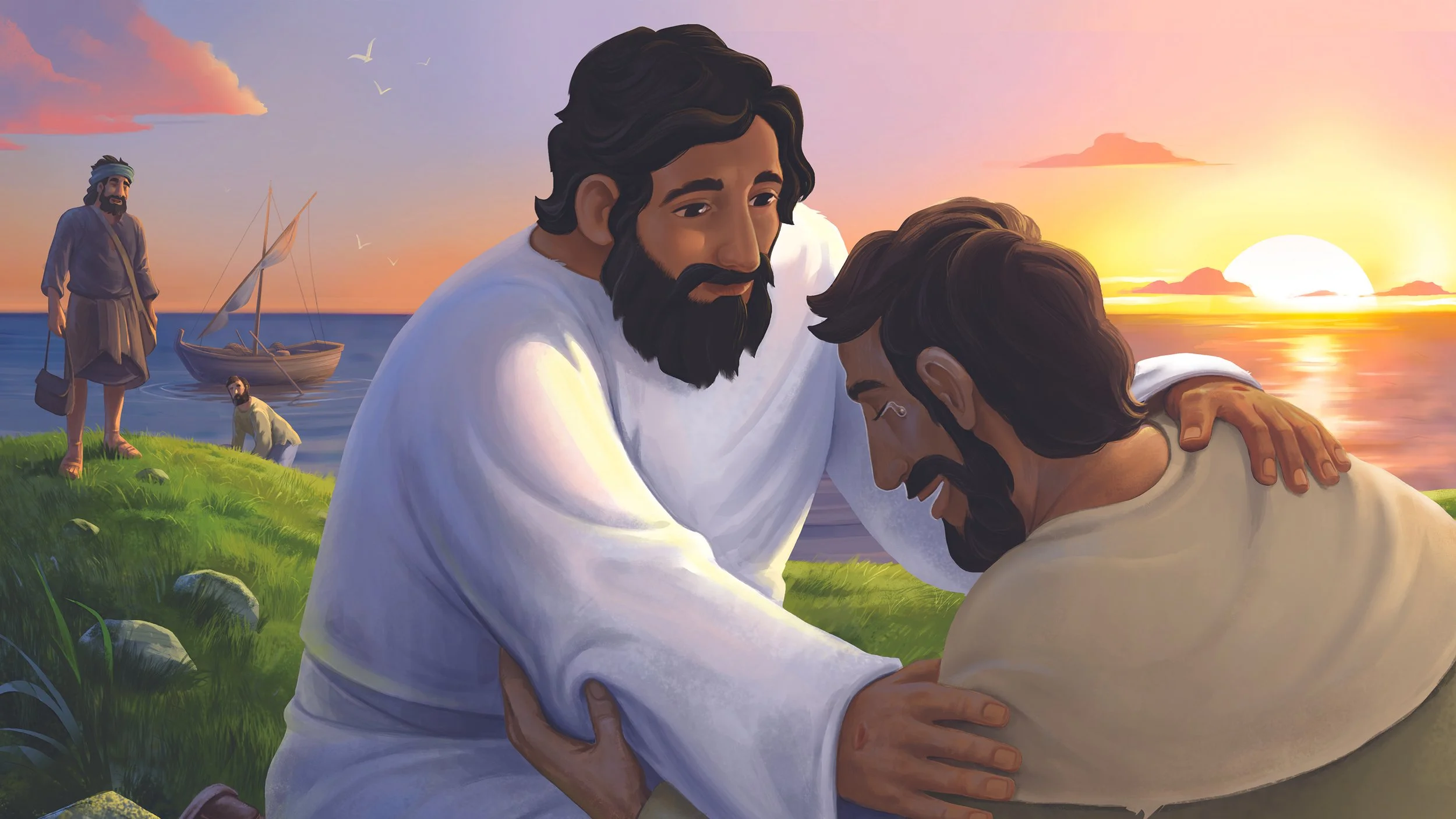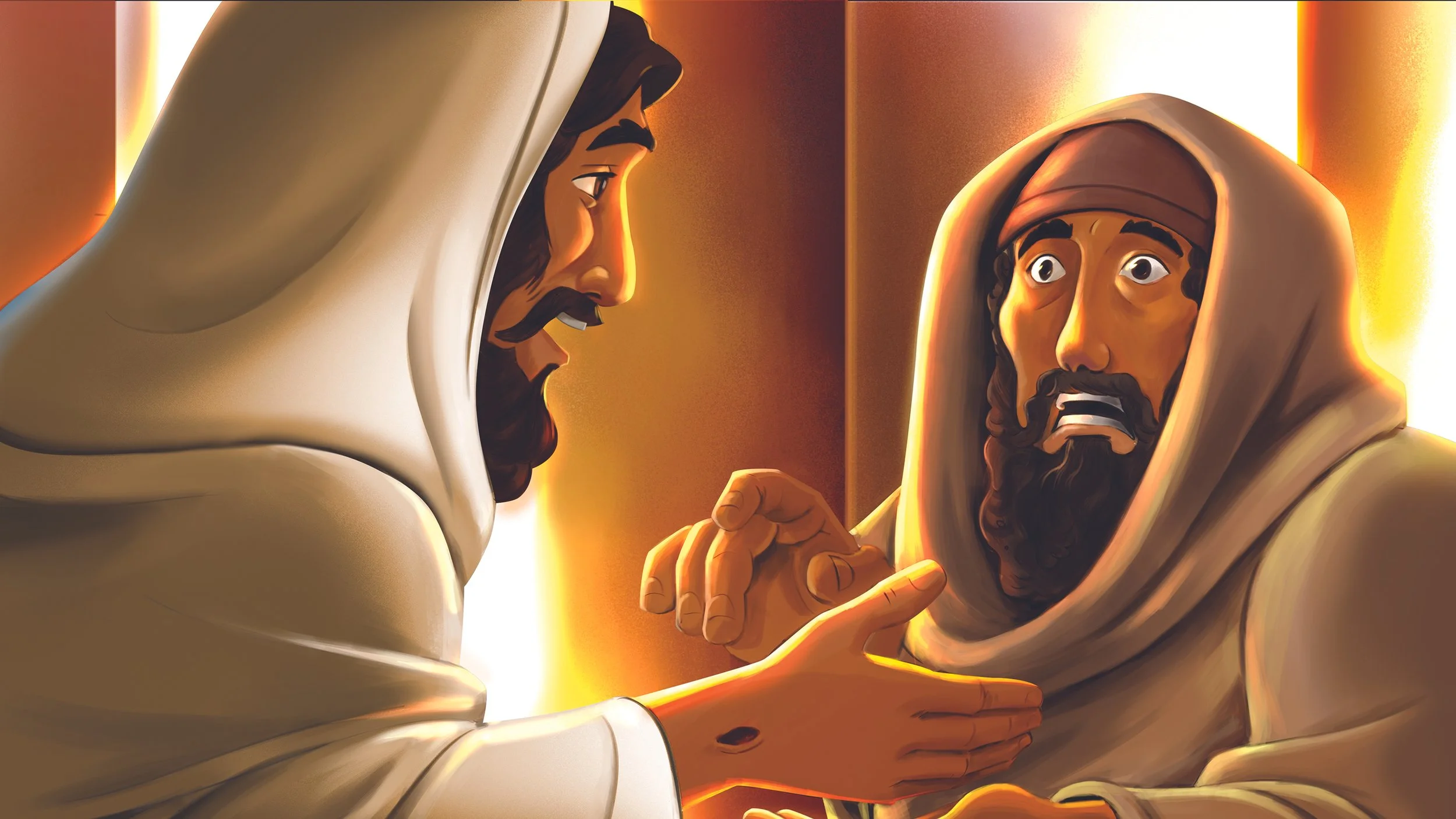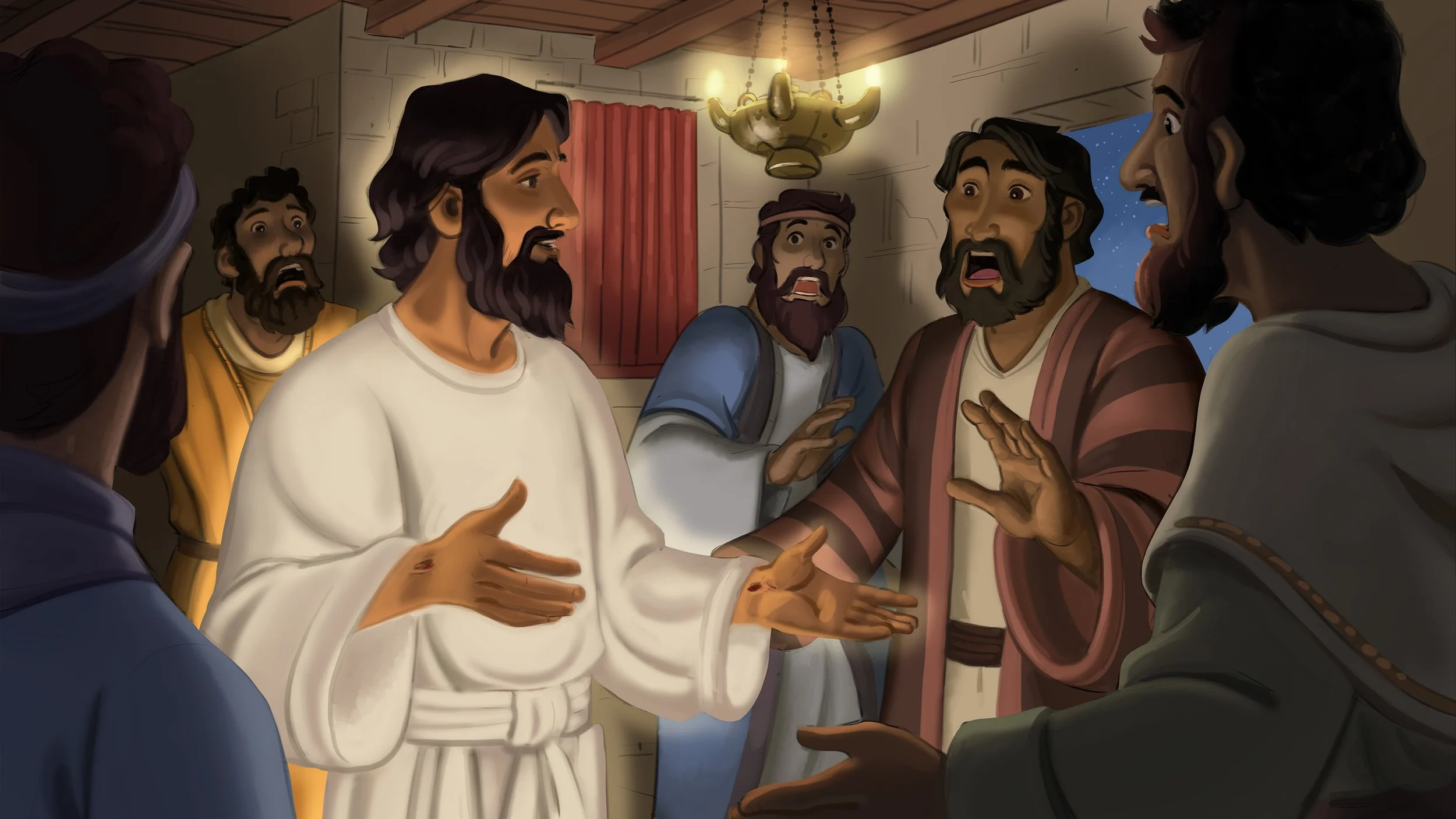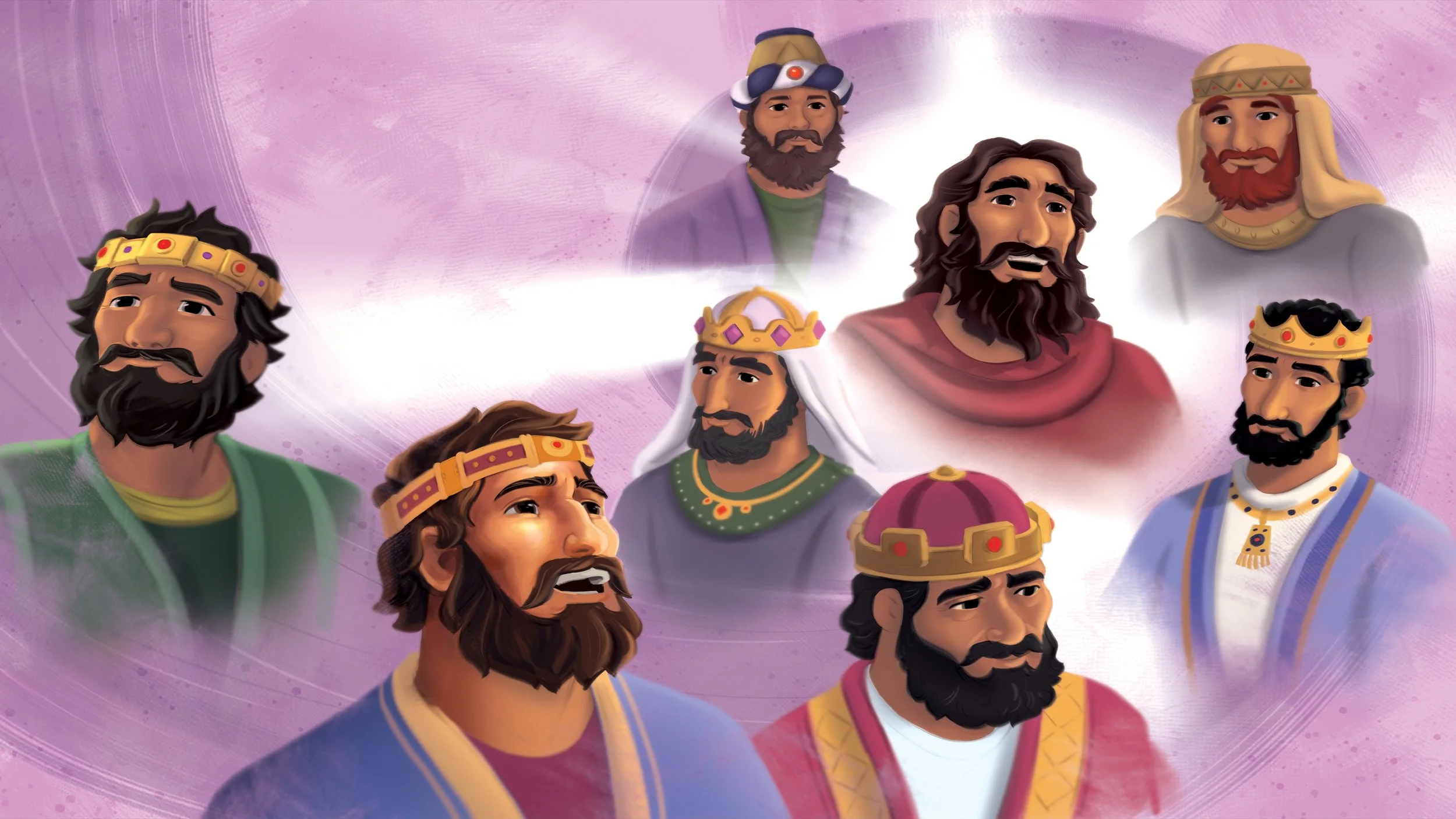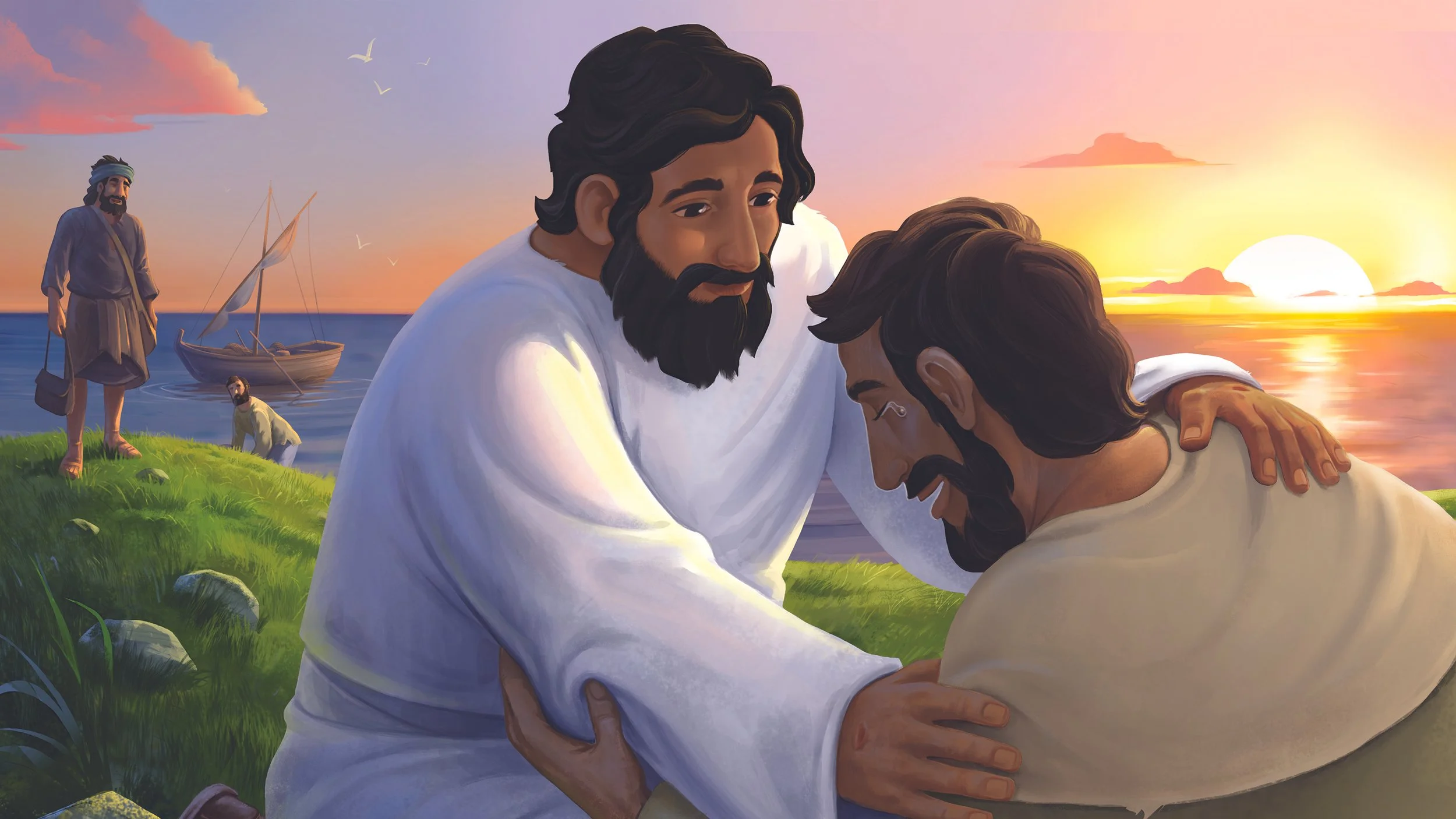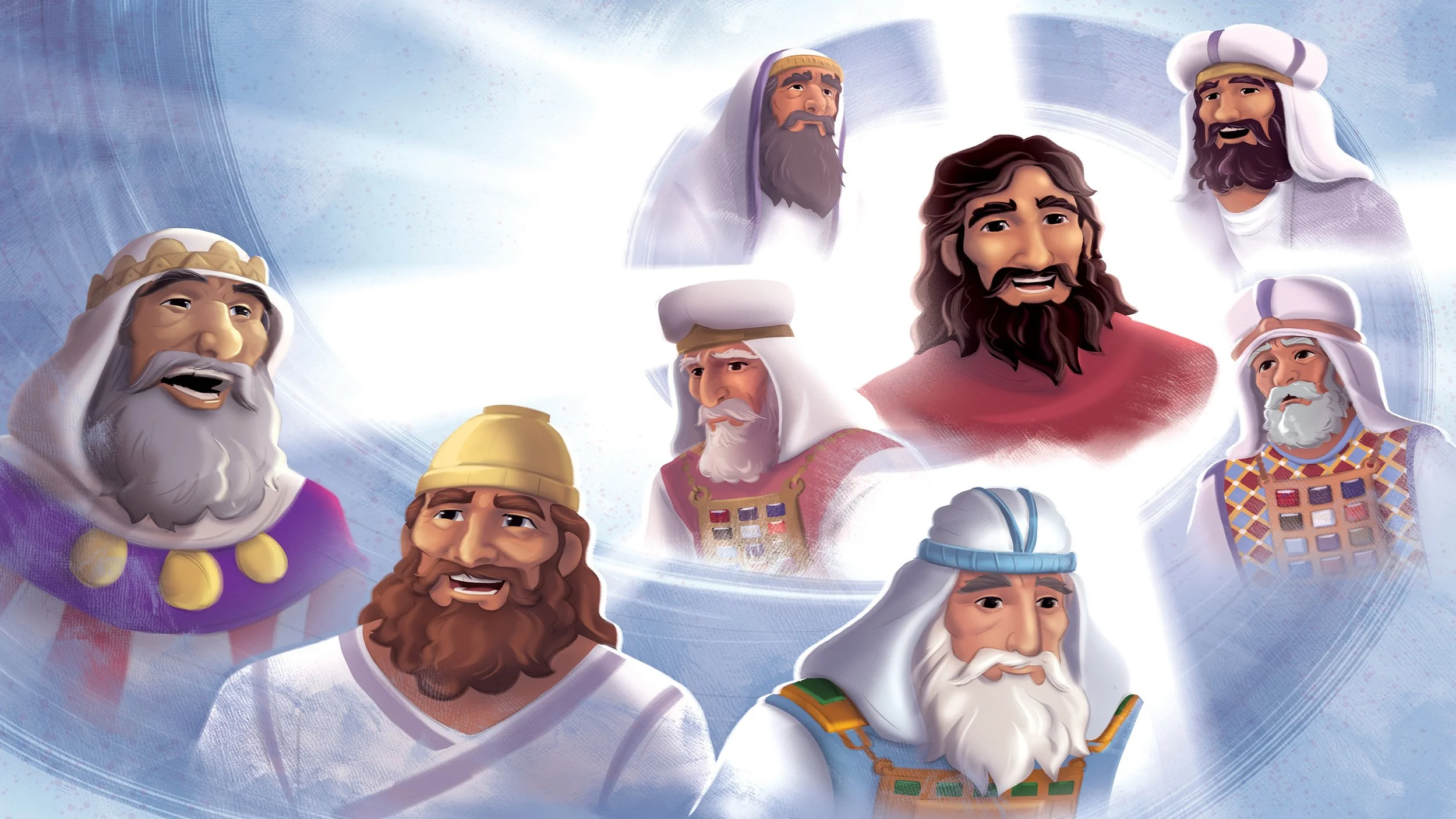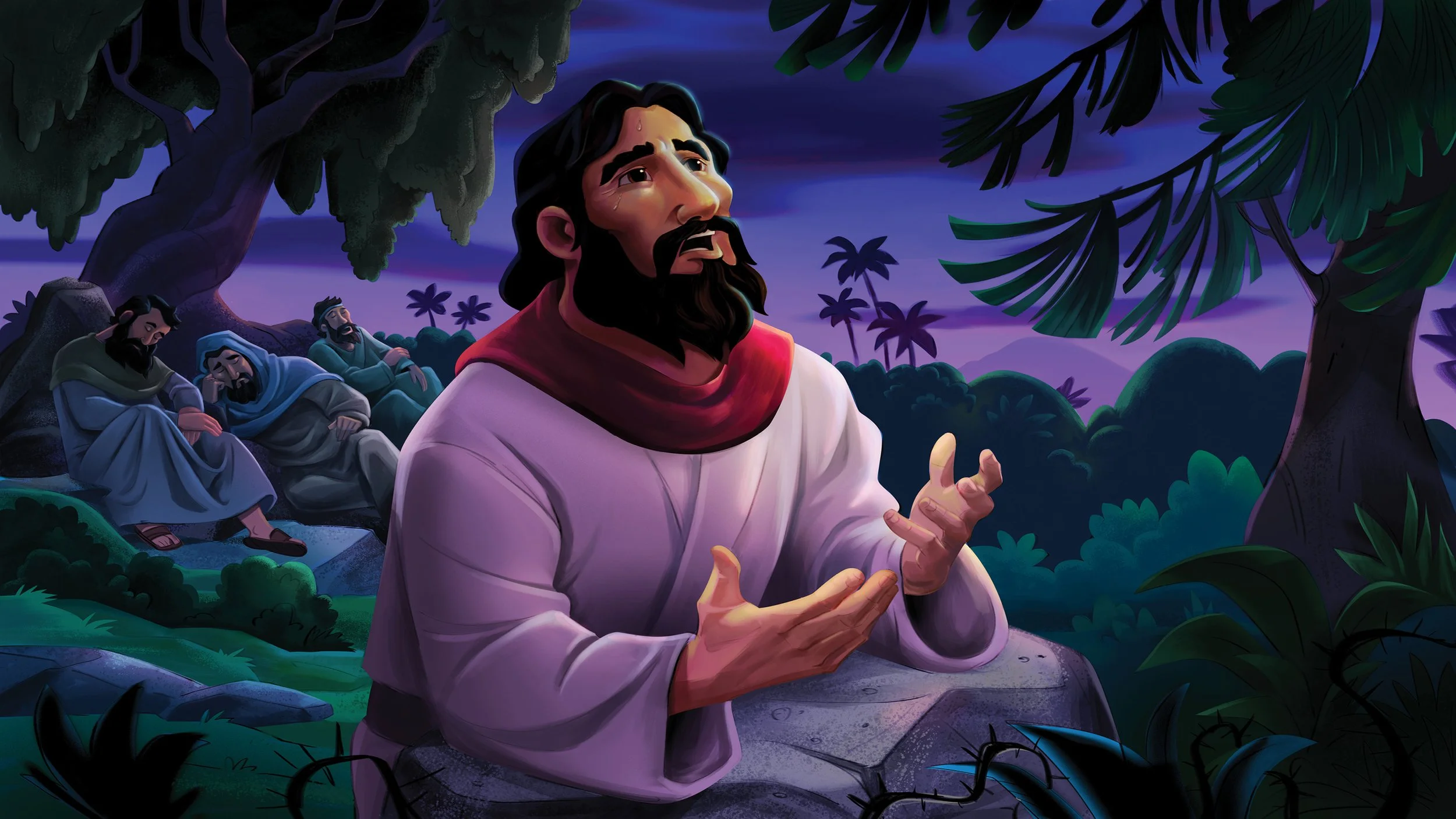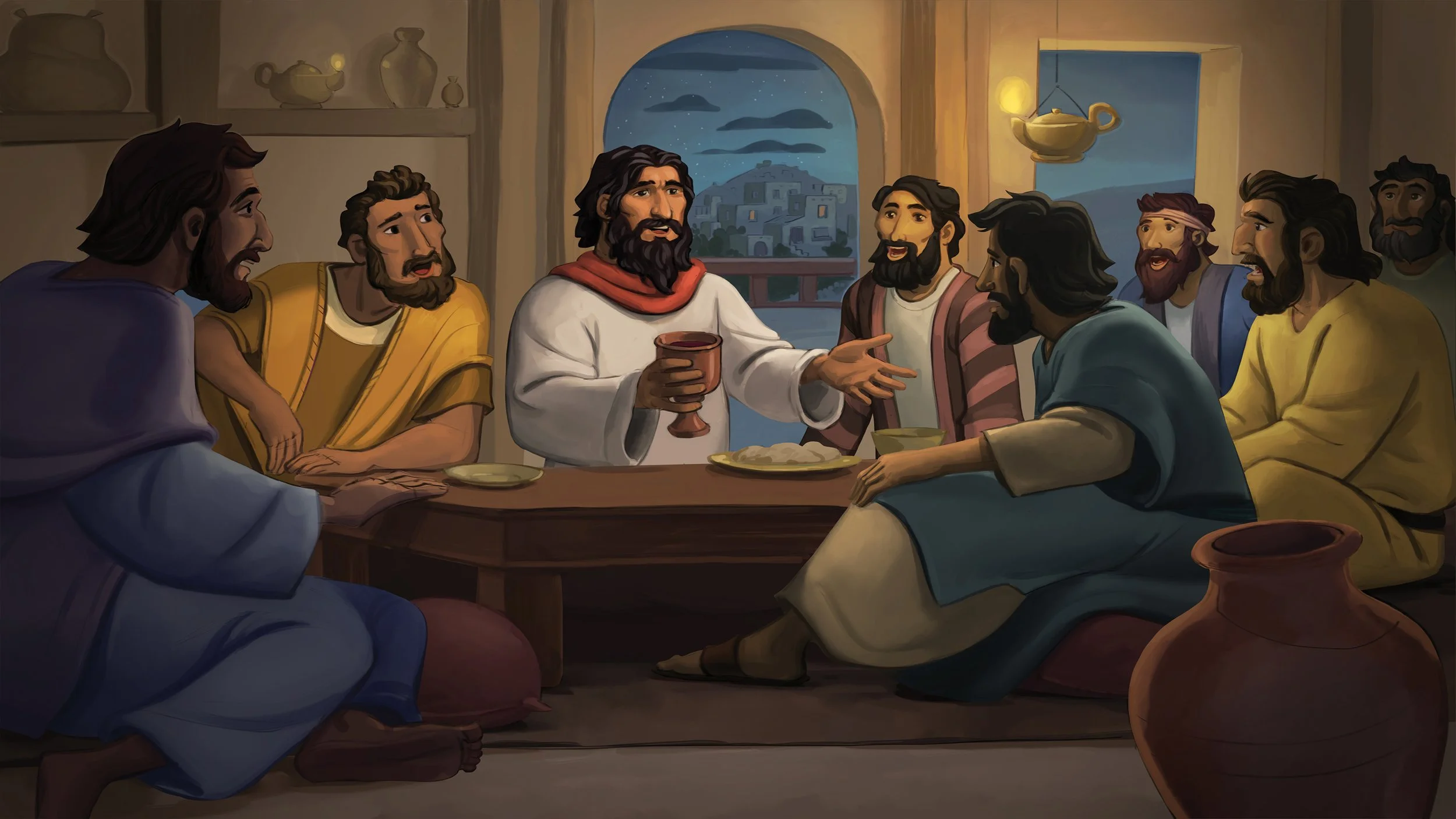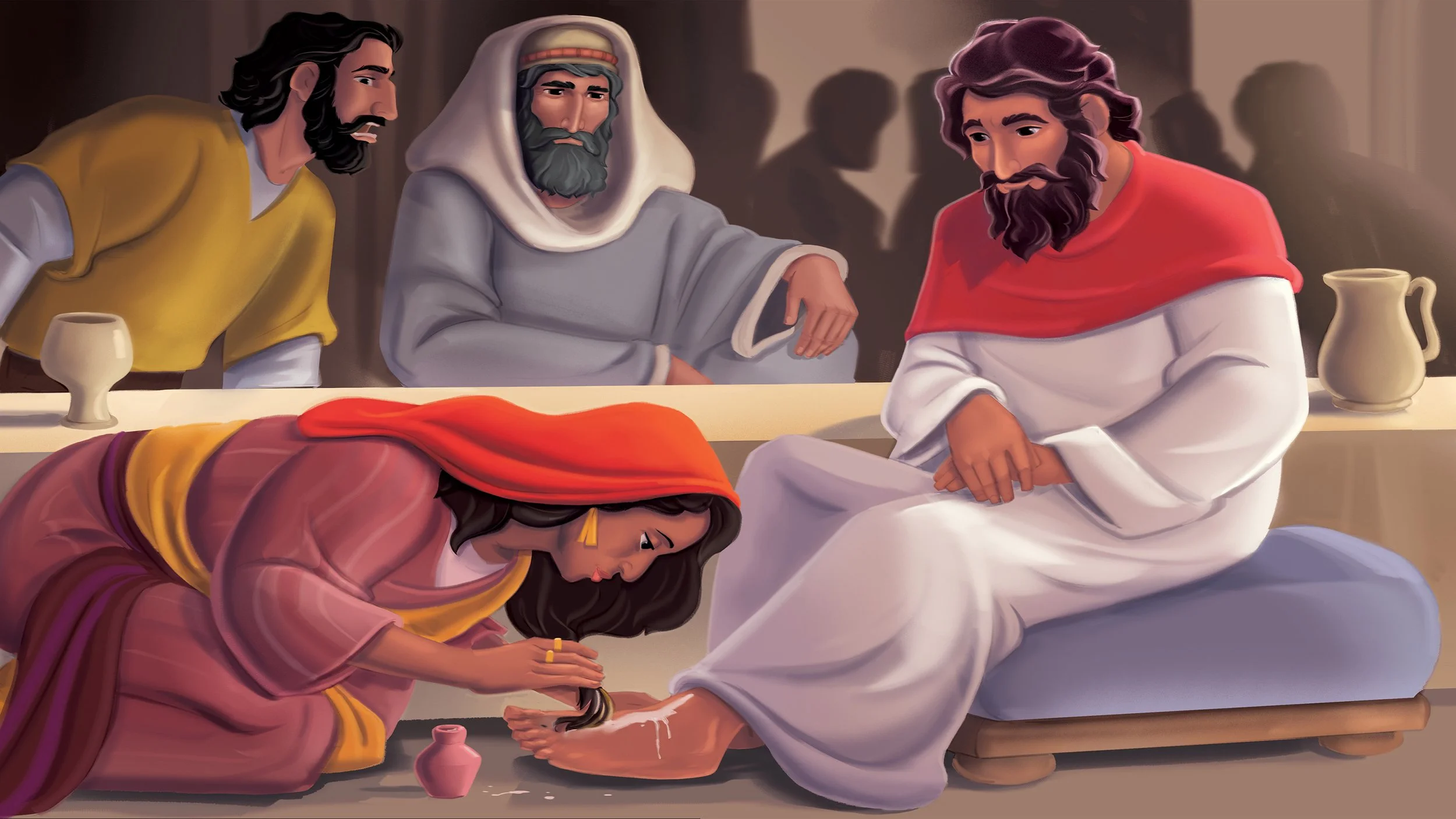Jesus Forgave Peter (John 21)
In the beginning of John 21, we read of the resurrected Christ’s third appearance to His disciples. Although Peter had seen Jesus, perhaps he had not yet come to terms with his three-fold denial of Jesus. Through a series of three questions and commands, Jesus demonstrated His mercy and forgiveness toward Peter's denial as well as His wisdom to help Peter understand that obedience flows from a heart of love toward God.
How does Christ’s forgiveness toward Peter demonstrate His own mercy toward us? What does Jesus’ commission to Peter teach us about our call as forgiven disciples?
While Peter hadn’t been the first disciple in the boat to realize the man calling them back to shore was Christ, he was the first one making waves to get back and join the Savior where He stood. We witness this headstrong disciple plunge himself into the sea to swim to Jesus while the rest struggled to haul in all the fish they had caught.
In their conversation after breakfast, Jesus repeatedly asked Peter, “Do you love me?” Each time Jesus asked, Peter became more grieved. Jesus didn’t ask this question because He didn’t know the disciple’s response; rather, Jesus wanted Peter to examine his motives and mission before stepping into God’s calling on his life: that he would lead others into His gift of eternal life.
Lead your children to consider how impactful Jesus’ mercy was in these moments on the beach. How unbelievable it is that Jesus was willing to forgive Peter after all the times he had denied Him! This same forgiveness has been granted to us through faith in Jesus.
Remember: God chose to use Peter to lead others to Jesus, despite the ways he had fallen short in sin. God can choose us, too. Nothing can separate us from Jesus’s love, power, or authority over our lives. With each new day, He beckons us to lead others as we follow Him.
Christ Connection: The disciples had turned away from Jesus when He was arrested, but Jesus still wanted to use them in God’s plan—as fishers of men who would tell people the good news about Jesus. Jesus is the Lord who forgives us and makes things right again.


